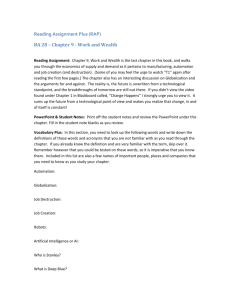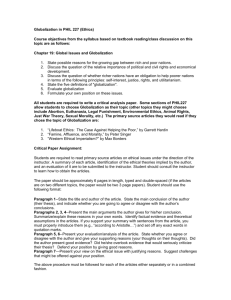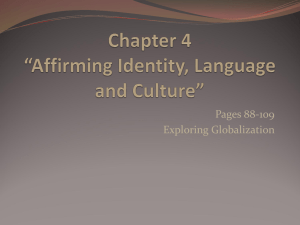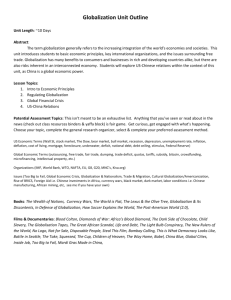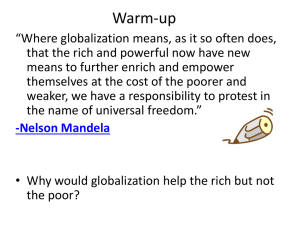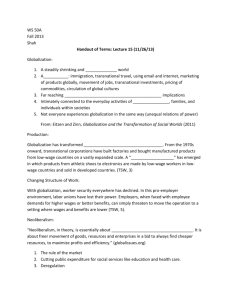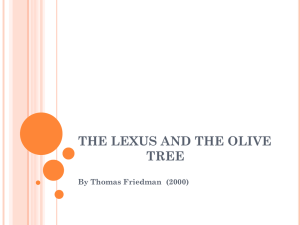ThreeChallenges
advertisement
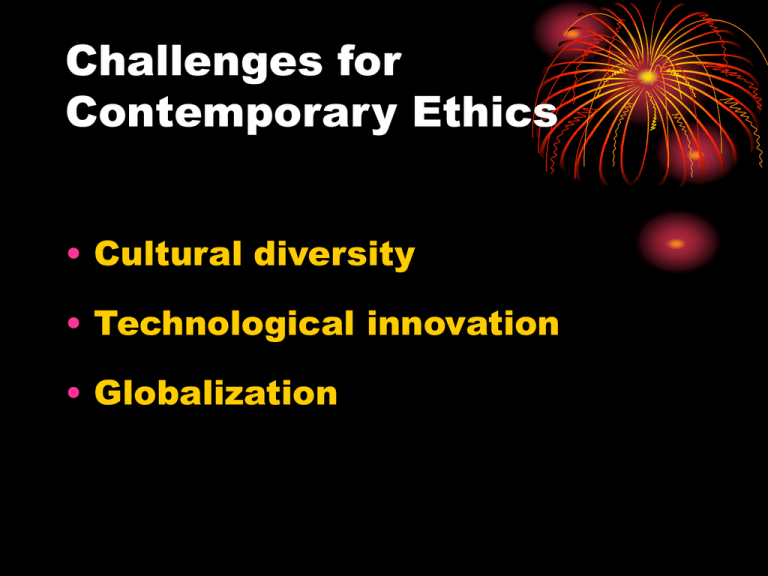
Challenges for Contemporary Ethics • Cultural diversity • Technological innovation • Globalization Cultural Diversity • Culture is an aspect of personal identity • Based on religion, language, custom • Expressed through symbolic behavior such as distinctive clothing or ritual observance • Challenge: in a pluralistic, liberal, democratic society, how to respect and recognize cultural diversity Technological innovation • Technology is a set of tools (physical or conceptual) built to supplement and/or alter natural human capabilities. • Education both uses technology (in the popular sense of computers or AV presentations) and is a technology (transmitting past knowledge increases human capabilities) • Medicine both uses technology (i.e. CAT scan) and is a technology that extends human capabilities (resistance to illness, fertility, life span) Technological innovation • Challenge: applying moral norms to novel situations that emerge at a rapid rate • Morality evolves over long periods of time, in response to major change • Rapid technological innovation produces major changes for which traditional morality provides no clear framework (egs: fertility technology; communication technology) Globalization • Defined as a process of expanding flow of capital, work, and ideas across political and cultural boundaries • Our models of economics, citizenship, work/leisure, ; ways of life and identity are challenged by globalization, along with the moral norms that govern personal decisions • Globalization weakens the clear, stable boundaries that individual autonomy, rational choice, and respect for other’s rights need in order to function well. Globalization • Challenge: how to enjoy the benefits associated with globalization while lowering the costs of globalization; • Challenge for ethics: to develop new models of: • Agency and responsibility • Identity • Community
